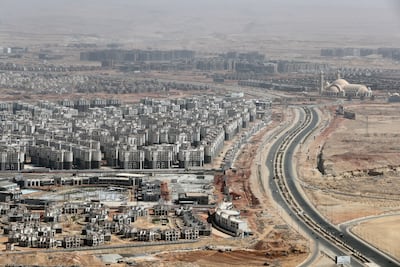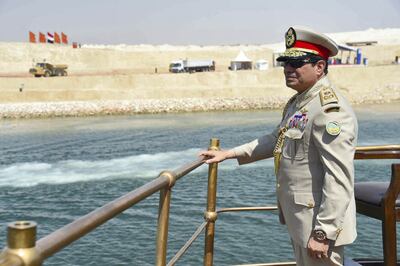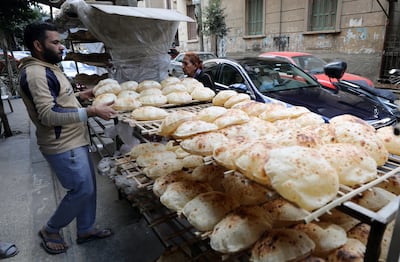Egypt's much-heralded national dialogue opened on Wednesday to chart the most populous Arab nation's political future amid a biting economic crisis and growing regional challenges.
“The increasing challenges facing the Egyptian state on all fronts have reinforced my will to see a dialogue which I now look forward to it being comprehensive, energetic and effective,” President Abdel Fattah El Sisi said in a recorded video message.
“The range of diversity and differences in viewpoints will strongly bolster the efficiency of the outcome.”
Mr El Sisi, a former army general elected president in 2014, called for the dialogue in April last year, less than two months after the outbreak of the Russia-Ukraine war, which has badly hurt the Egyptian economy.
Combined with home-grown woes, the fallout from the conflict has stripped Egypt's currency of 50 per cent of its value, sent inflation soaring and created a dollar crunch that suppressed imports and hurt local industries.
Soon after his call, the government began to release hundreds of critics held in pre-trial detention and allowed a carefully weighed margin of freedom of expression.
Economic and political commentators candidly express their views online and in the handful of publications that remain outside state control.
Their criticism was chiefly focused on the government's economic policies, singling out the expenditure of billions of dollars on mega national projects that they claimed to be unnecessary or not a priority.

The government countered by saying reliable infrastructure was needed to attract investment.
The opposition has contended that while it welcomed the release of more than 1,000 critics from detention, thousands more remain behind bars and more have been arrested over the past year.
Many in Egypt are hoping that the national dialogue will serve as a catalyst for real change, particularly in accountability and transparency, at a time when parliament is packed with supporters of Mr El Sisi who swiftly rubber stamp government policies or draft legislation.
Crucially, the dialogue comes a year before presidential elections. Mr El Sisi is widely expected to seek what is effectively a third term in office.

Although it is only a year away, only one politician, former lawmaker Ahmed Tantawi, has announced his intention to run.
Addressing the dialogue's inaugural session on Wednesday, former foreign minister and Arab League chief Amr Moussa delivered a thinly-veiled rebuke of Mr El Sisi and his government.
“People in Egypt are very concerned and are wondering about its problems They are alarmed over the fate of this nation,” said Mr Moussa, 86, who unsuccessfully ran for president in 2012 when the now-banned Muslim Brotherhood's Mohamed Morsi came to power, only to be removed a year later by Mr El Sisi.
“People are asking questions about the prioritisation of projects, transparency, accumulating debts and how they are spent and repaid.”
Mr Moussa also called for an end to pre-trial detentions.
“That file must be closed once and for all,” he said.
“The path is difficult and the challenges are grave and unprecedented and not all of them are the result of mistakes committed abroad.” He was alluding to the government's tireless assertion that the Russia-Ukraine war is entirely to blame for the nation's economic crisis.

Diaa Rashwan, the dialogue's chief co-ordinator, said on Wednesday that the discussions would not include amending the constitution, foreign policy and what he called issues related to strategic national security “because we have confidence in the state's and the military's ability to handle them”.
However, he sought to dismiss speculation that the government has informed the dialogue's organisers that specific issues were “red lines”, or not open for discussion.
“The only red lines are the constitution and the law,” he said. “All issues are on the table in the national dialogue to build a modern democratic state.”
The dialogue, he added, may last weeks or months. Its recommendations will be submitted to Mr El Sisi to act on, whether to shelve or turn into draft legislation to be sent to parliament.

